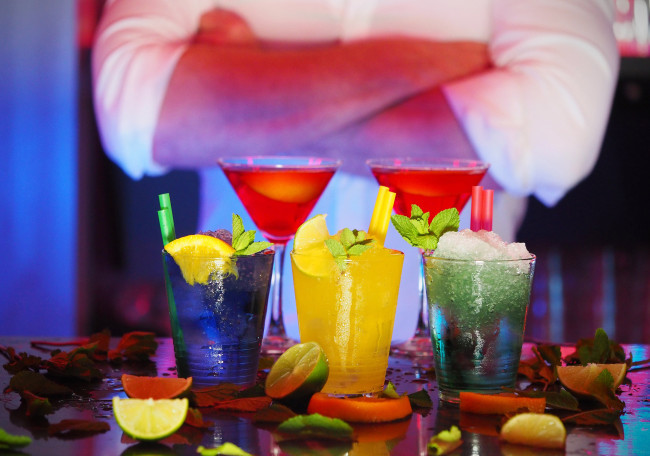Pennsylvania allows sale of mixed drinks and cocktails to-go from struggling bars and restaurants

From a press release:
Today, Governor Tom Wolf today signed House Bill 327, now Act 21 of 2020, allowing the temporary sale of mixed drinks and cocktails to-go from bars, restaurants, and hotels with a liquor license. The law takes effect immediately.
“This new temporary rule creates more business for bars and restaurants when they need it, helps to meet customer demand, and supports social distancing,” Wolf said.
“As we approach the holiday weekend, I encourage all Pennsylvanians to remember to drink responsibly.”
The law applies to bars, restaurants, and hotels that have lost 25 percent of average monthly total sales during the coronavirus pandemic. The beverages must be sold in containers with a secure lid in quantities from 4 oz.-64 oz. before 11 p.m. An additional seal is required on the straw opening of a lid. Pennsylvania’s open container law applies.
Within 60 days, bars and restaurants must use a transaction scan device to verify a consumer’s age if the person appears to be younger than 35 years old.
“Our local restaurants are working hard to feed our communities during this difficult time,” Representative Perry Warren said.
“Act 21 both streamlines the process for residents to decide whether to permit alcohol sales in a ‘dry’ municipality and allows restaurants to add another product for their customers for curbside pickup and takeout during this crisis. I thank Governor Wolf and my colleagues on both sides of the aisle for supporting this bill.”
The temporary rule expires after the COVID-19 disaster emergency ends and a business reaches 60 percent capacity.
Pennsylvania Liquor Control Board issues new policies
The Pennsylvania Liquor Control Board has issued guidance to licensees regarding Act 21 of 2020, which will inform law enforcement efforts. To summarize the full document:
- Only hotel and restaurant licensees selling food to-go and meeting the 25 percent sales impact threshold are authorized to sell drinks to-go.
- Each prepared beverage and mixed drink sold to consumers must be between 4-64 ounces and include liquor and at least one mixer combined on the licensed premises.
- Licensees may not sell to-go mixed drinks containing wine or beer, unopened bottles of liquor, gallon jugs of cocktails, unopened ready-to-drink prepackaged cocktails, or straight liquor.
- Drinks to-go may not be consumed on the licensed premises and must be sold in sealed containers with secure lids or caps designed to prevent consumption without removal of the lid or cap. A lid with sipping or straw holes must be covered or affixed with an additional seal before sale.
- Licensees can sell drinks to-go Monday through Saturday from 7 a.m.-11 p.m. and from 9 a.m.-11 p.m. on Sundays if the licensee has a Sunday sales permit.
- There is no limit to the number of drinks to-go a person can purchase at a time, and the purchase of a meal is not required in order to buy drinks to-go.
- Drinks-to-go may not be delivered.
- Within the next 60 days, any licensee selling drinks to-go must begin to use a transaction scan device to verify the age of anyone appearing under 35 years of age before making a sale.
- Retail licensees not permitted to sell drinks to-go include clubs and catering clubs, any licensee whose license was objected to through the Nuisance Bar program, any licensee whose license is suspended or in safekeeping, and any licensee previously suspended under the Licensee Compliance program.
The new law also permits qualifying hotel and restaurant licensees to temporarily sell liquor (not wine or beer) to each other. Licensees selling liquor to other qualifying licensees must report those sales to the PLCB within seven days of each sale.
Pennsylvanians are reminded that it is illegal to have an open container of alcohol while in a vehicle, and open containers may only be transported in a vehicle’s trunk or some other area of the vehicle not occupied by the driver or passengers.
More Fine Wine & Good Spirits stores allow customers inside
Following the implementation of curbside pickup in April, the PLCB also announced today that 50 more Fine Wine & Good Spirits stores in counties designated in the yellow phase of COVID-19 mitigation efforts will resume limited in-store public access beginning Friday, May 22, abiding by guidance for businesses issued by the Wolf administration detailing social distancing requirements and other best practices in the interest of public health and safety.
Effective tomorrow, a total of 283 Fine Wine & Good Spirits stores in 48 counties will allow limited in-store public access. Most of Pennsylvania will be shifting into the yellow phase by Friday, but in Northeastern Pennsylvania, the counties of Lackawanna, Luzerne, Monroe, and Pike will remain red.
Stores reopening to limited public access will continue offering curbside pickup to the best of their ability, as they operate with limited staff. Statewide curbside pickup sales from April 20 through May 20 total more than 804,000 orders for $56.3 million, including sales tax, according to preliminary, unaudited figures.
The PLCB will also continue accepting online orders at finewineandgoodspirits.com. According to preliminary, unaudited figures, e-commerce sales from April 1 through May 20 total nearly 193,000 orders for $18.5 million, excluding sales tax. In fiscal year 2018-19, e-commerce sales between July 1, 2018 and June 30, 2019 totaled 39,000 orders for $5 million.
The PLCB regulates the distribution of beverage alcohol in Pennsylvania, operates nearly 600 wine and spirits stores statewide, and licenses 20,000 alcohol producers, retailers, and handlers. The PLCB also works to reduce and prevent dangerous and underage drinking through partnerships with schools, community groups, and licensees.
Taxes and store profits – totaling nearly $18.5 billion since the agency’s inception – are returned to Pennsylvania’s General Fund, which finances Pennsylvania’s schools, health and human services programs, law enforcement, and public safety initiatives, among other important public services. The PLCB also provides financial support for the Pennsylvania State Police Bureau of Liquor Control Enforcement, the Department of Drug and Alcohol Programs, other state agencies, and local municipalities across the state.



